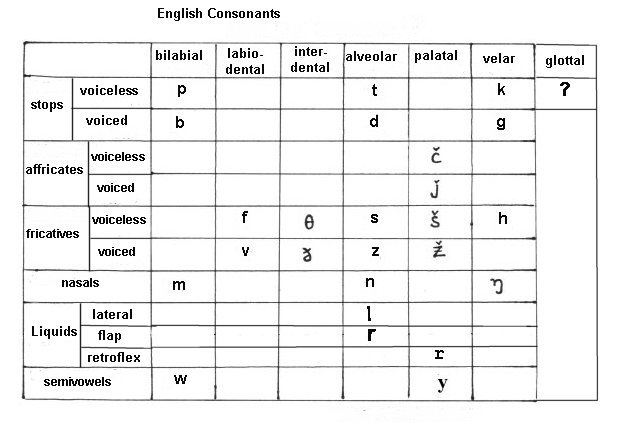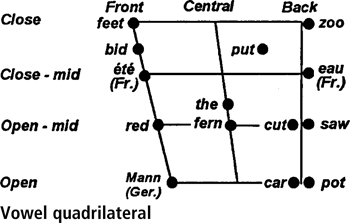
ACTIVITIES
consonant n. Any speech sound that involves a significant obstruction of the airstream in the vocal tract and that functions at the beginning or end of a syllable, either singly or in a cluster, or a letter of the alphabet representing such a speech sound. Plosive consonants involve complete stoppage of the airstream and are maximally consonantal; nasal (2) consonants complete blockage of the airstream through the mouth but not the nose; fricatives considerable obstruction but not stoppage; lateral consonants obstruction in the centre of the mouth only; and approximants relatively little obstruction of the airflow. Compare semivowel, vowel. consonantal adj. [From Latin consonare to sound at the same time]

vowel n. A speech sound, almost invariably forming the main part of a syllable, that involves no significant obstruction of the airstream through the vocal tract. Various features distinguish the sound of one vowel from another, notably whether the front, central part, or back of the tongue is raised, leading to front vowels, central vowels, and back vowels respectively, and how high the tongue is raised towards the roof of the mouth, leading to close vowels, mid vowels, and open vowels. These features are often portrayed on a vowel quadrilateral representing the mouth schematically (see illustration). Compare consonant, semivowel. [French voyelle, from Latin vox a voice]

diphthong n. Any complex vowel sound comprising a glide from one vowel sound to another within a single syllable, with movement of the tongue between the two sounds. In Received Pronunciation there are three diphthongs in which the final sound is similar to the vowel in tip (as in the words day, tie, boy); two in which the final vowel sound is similar to the vowel in put (as in go and how); and three in which the final vowel sound is similar to the vowel in the (as in veer, care, and poor). Compare digraph, monophthong, triphthong. [From Greek di- two + phthongos sound]
Kestrel (
Philology n. 1. Love of learning and literature; the branch of knowledge that deals with the historical, linguistic, interpretative, and critical aspects of literature; literary or classical scholarship.
Crow . (
translation: cuervo.